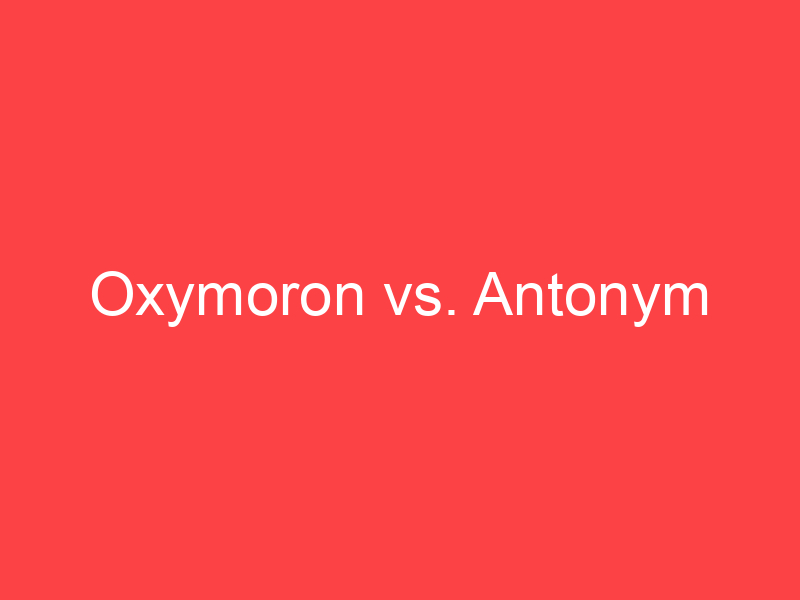-
Oxymoron
An oxymoron (usual plural oxymorons, more rarely oxymora) is a rhetorical device that uses an ostensible self-contradiction to illustrate a rhetorical point or to reveal a paradox. A more general meaning of “contradiction in terms” (not necessarily for rhetoric effect) is recorded by the OED for 1902.
The term is first recorded as latinized Greek oxymōrum, in Maurus Servius Honoratus (c. AD 400); it is derived from the Greek ὀξύς oksús “sharp, keen, pointed” and μωρός mōros “dull, stupid, foolish”; as it were, “sharp-dull”, “keenly stupid”, or “pointedly foolish”. The word oxymoron is autological, i.e. it is itself an example of an oxymoron. The Greek compound word ὀξύμωρον oksýmōron, which would correspond to the Latin formation, does not seem to appear in any known Ancient Greek works prior to the formation of the Latin term.
-
Antonym
In lexical semantics, opposites are words lying in an inherently incompatible binary relationship, like the opposite pairs big : small, long : short, and precede : follow. The notion of incompatibility here refers to the fact that one word in an opposite pair entails that it is not the other pair member. For example, something that is long entails that it is not short. It is referred to as a ‘binary’ relationship because there are two members in a set of opposites. The relationship between opposites is known as opposition. A member of a pair of opposites can generally be determined by the question What is the opposite of X ?
The term antonym (and the related antonymy) is commonly taken to be synonymous with opposite, but antonym also has other more restricted meanings. Graded (or gradable) antonyms are word pairs whose meanings are opposite and which lie on a continuous spectrum (hot, cold). Complementary antonyms are word pairs whose meanings are opposite but whose meanings do not lie on a continuous spectrum (push, pull). Relational antonyms are word pairs where opposite makes sense only in the context of the relationship between the two meanings (teacher, pupil). These more restricted meanings may not apply in all scholarly contexts, with Lyons (1968, 1977) defining antonym to mean gradable antonyms, and Crystal (2003) warns that antonymy and antonym should be regarded with care.
-
Oxymoron (noun)
A figure of speech in which two words or phrases with opposing meanings are used together intentionally for effect.
-
Oxymoron (noun)
A contradiction in terms.
-
Antonym (noun)
A word which has the opposite meaning of another word.
“opposite”
“synonym”
““rich” is an antonym of “poor”; “full” is an antonym of “empty””

